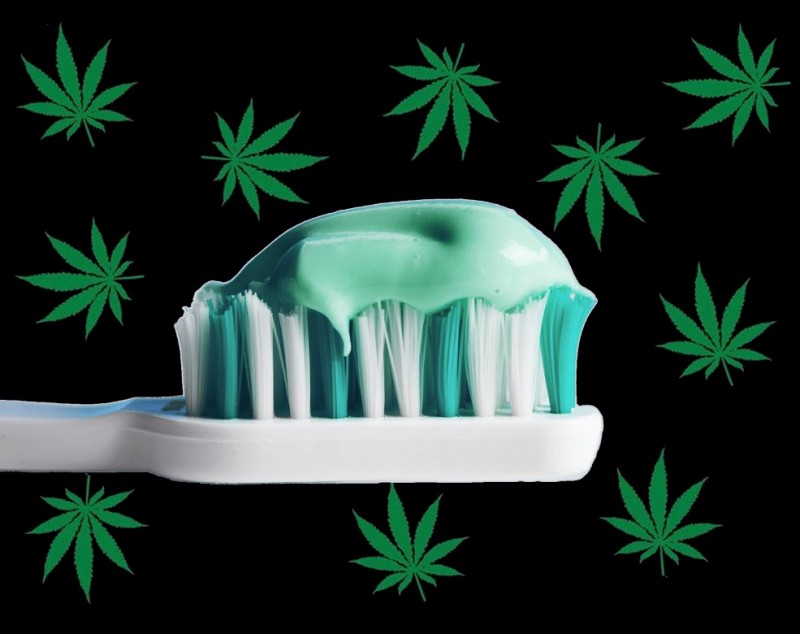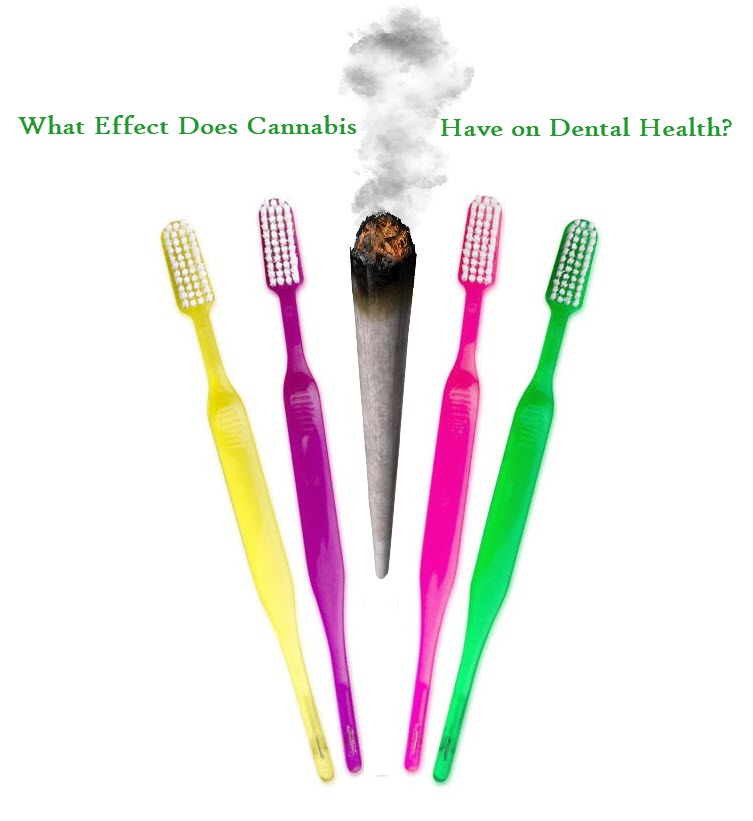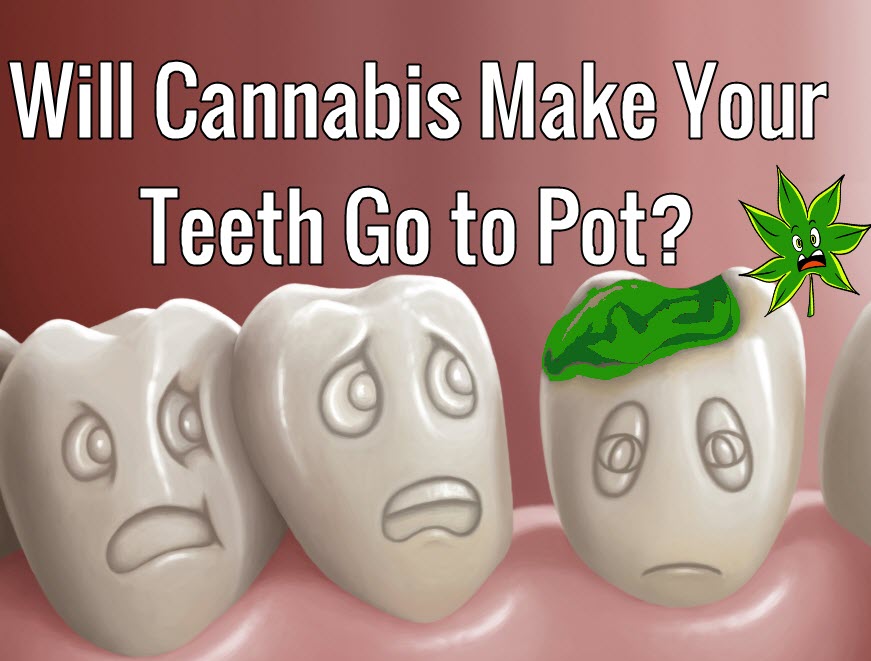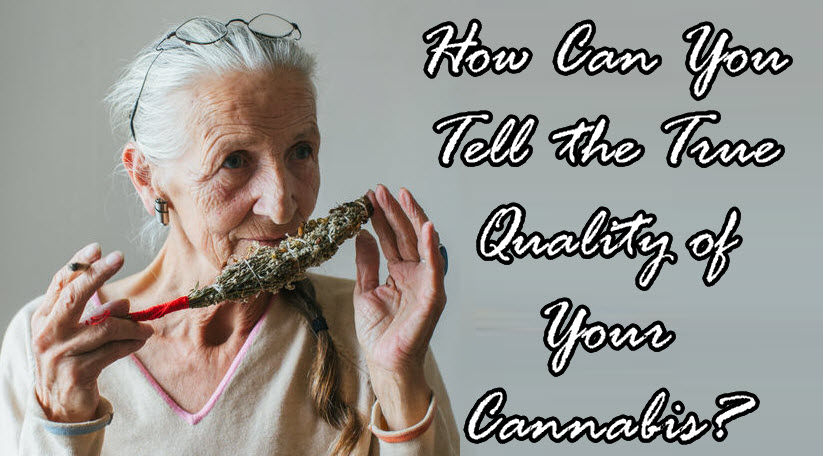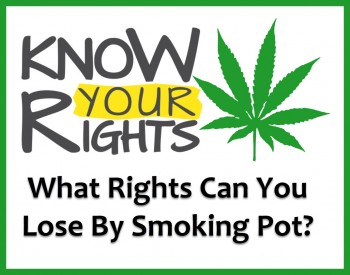How Good is Cannabis-Infused Toothpaste?
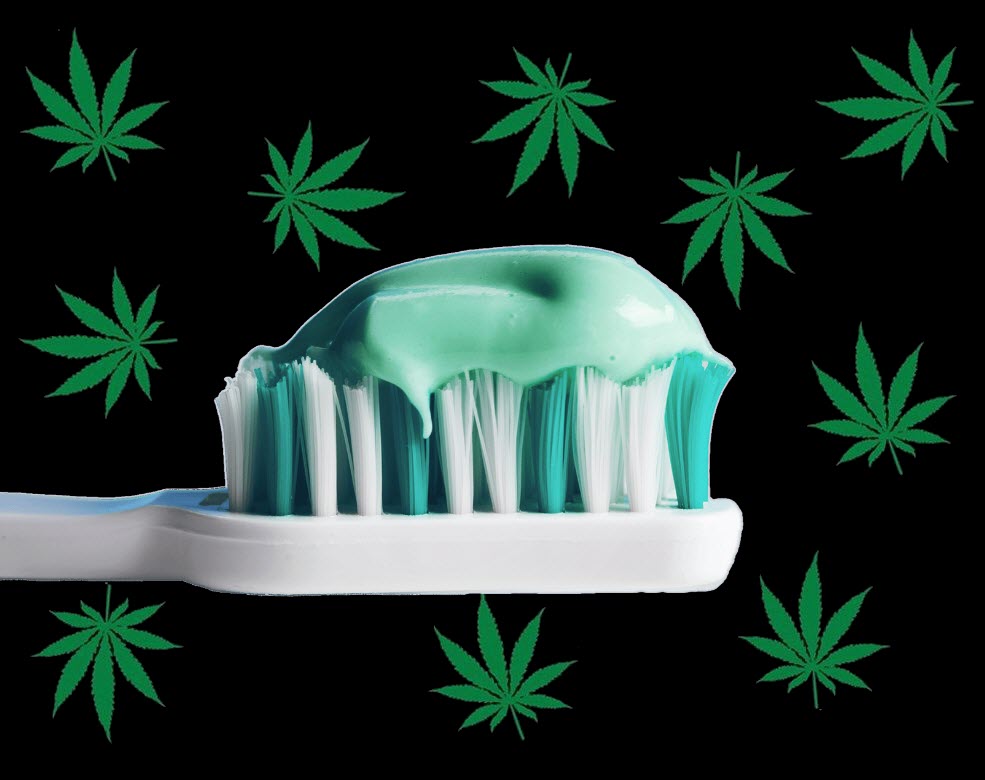
The image that some people have about the dental-health of cannabis consumers is not always so nice. There are rumors that if you smoke cannabis too much, it could lead to gum disease and even tooth decay. Some people also believe that weed users don’t have the best personal hygiene and that they are often too lazy to brush their teeth, or that they just don’t like flossing. And be as it may, most likely it is a huge assumption and based on how a person’s teeth look if you chew tobacco or smoke too much tobacco.
Luckily, unlike tobacco stains and how to deal with that, there is a solution to potential periodontal problems due to heavy cannabis smoking. Cannabis-infused toothpaste could very well change everything.
Cannabinoids and Dental Health
As the world is going bonkers about organic foods and goods, an effective all-natural cannabis-infused toothpaste might be just the thing to fight off plaque and rotten teeth. The anti-septic and anti-inflammatory properties are ideal for treating many dental problems. Almost daily, new therapeutic uses for cannabis come out all over the world. Dental health is often the last looked into, but more and more dentists are discovering the health benefits of cannabis. They are looking for ways to introduce it into their profession as a useful treatment.
Recently, a study in Cereus (2020), was investigating the fact if cannabinoids could reduce the bacterial content of dental plaque. The result was very positive as tests were done on very healthy teeth to rotten teeth. Cannabinoids outdone well-known synthetic toothpastes, like Colgate and Oral-B.
How is it Possible?
When the researchers in the study were analyzing the bacterial colony count of dental samples of sixty people, the results were very promising. The candidates had no history of antimicrobial therapies or immunosuppressive. Their periodontal screenings were mixed from perfect gums to severe bone resorption and high tooth mobility.
The plaque samples were put onto two Petri dishes. Cannabinoids were put onto the first Petri dish, where synthetic toothpaste was put onto the second Petri dish content. The Petri dish with cannabinoids had CBD, CBD, CBN, and CBG in play. On the other Petri dish cannabigerolic acid (CBGA), Oral B, Colgate, and Cannabite F (a toothpaste made from pomegranate and algae).
The result showed that the Petri dishes with the cannabinoids testing, the colony counts were significantly lower than those tested with synthetic products. It was also discovered that CBN and CBC were the most effective in reducing bacteria.
In this study, the statistical analysis is lacking, because the microflora from each individual was different. Every mouth of each human has its own unique biome. This makes statistical analysis very difficult.
How do Cannabinoids work as an Antibacterial?
The good news is that quite a lot of research on cannabis has been done over the last decade or so. It is just nothing new to acknowledge that cannabis contains multiple antibacterial properties. THC, CBD, CBD, and CBG have all proved that they can fight infections. The cannabinoids from the plant have the ability to fight against the drug-resistant strains of Staphylococcus aureus, also known as MRSA.
Even though there is so much research done on THC and CBD, and it is well known that these cannabinoids have antibacterial qualities, it is still not clear exactly how it works against infections.
Another study showed that the endocannabinoid anandamide (AEA), and the endocannabinoid-like arachidonoyl serine (Aras) also have effective activity against MRSA. These endocannabinoids were effective in fighting MRSA through inhibiting biofilm formation. Dental plaque is a biofilm of gram-positive bacteria like Streptococcus mutants. These bacteria are responsible for tooth rot. The question is if cannabinoids could also reduce biofilm formation?
What can we take away from this?
Studies are still in its baby shoes, and long-term studies are needed to deduce the efficacy of cannabinoids on a wider range of humans. Thankfully science is beginning to understand more about the endocannabinoid system. They are getting to know that each individual responds differently to cannabinoids.
Based on previous cases where cannabis and dental health show some negative responses to gum diseases and periodontal health, people are inclined to think that cannabis use is not good for dental health. And there are results were long-term cannabis users show damage to connective tissue and tooth loss. Something that is found amongst tobacco smokers too. But the damage is not as severe as with chronic tobacco smokers.
Other studies show though, that the endocannabinoid AEA reduced periodontitis inflammation by using the CB1 and CB2 receptors. Cannabis also has anti-inflammatory properties, but smoking cannabis could actually cause periodontitis. Smoking cannabis per se would not necessarily protect your teeth against decay.
After Thought
There is more to cannabis than smoking it. Cannabis-infused toothpaste and mouth wash are already available on the market. It certainly looks as if it could be included in your daily routine.
CANNABIS, TEETH, AND DENTAL HEALTH, READ MORE...
HOW WILL CANNABIS EFFECT YOUR DENTAL WORK AND TEETH?
OR..
WILL CANNABIS CAUSE TOOTH DECAY IN YOUR MOUTH?
OR...
HOW CAN YOU TELL GOOD WEED FROM BAD WEED? CLICK HERE.
OR..

